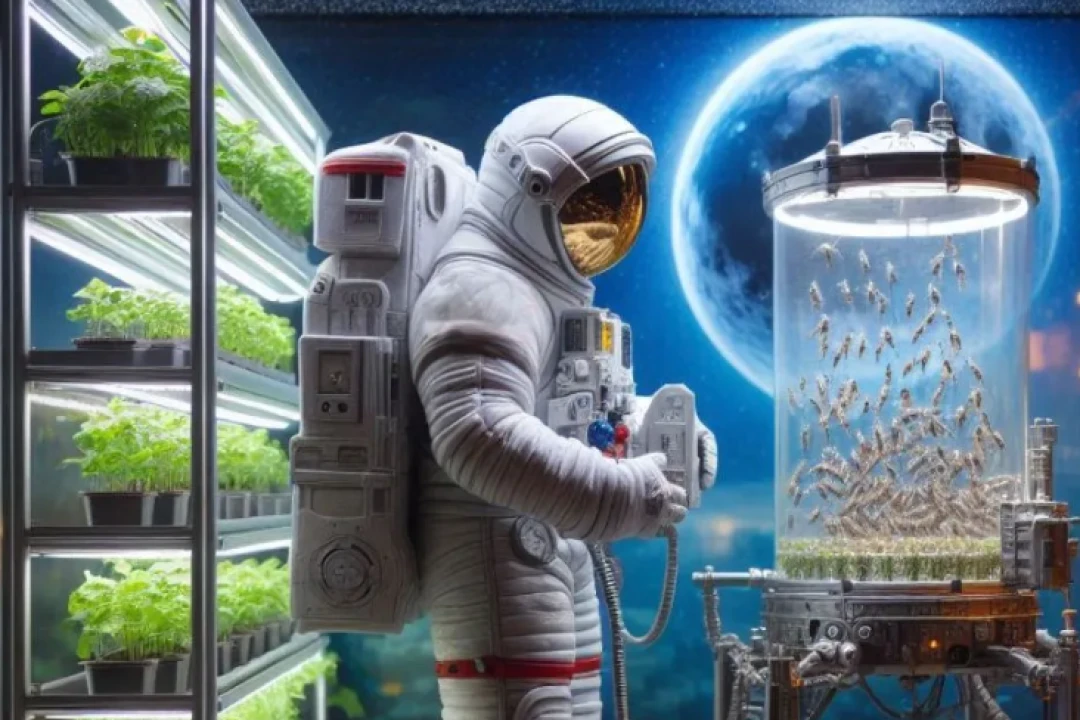ENEA, as part of the ReBUS project funded by the Italian Space Agency (ASI), which includes the Cnr, Istituto Superiore di Sanità (ISS), Thales Alenia Space Italia, Kayser Italia, Telespazio and the Universities of Tor Vergata, Pavia and Federico II of Naples as coordinator, has developed an insect based system converting waste produced by astronauts into fertilizers to grow microgreens, providing fresh food in long-duration spaceflight missions.
These are actual space techno-ecosystems ensuring optimal recycling of resources, making spaceflights increasingly independent of Earth in terms of supplies. This objective requires safe and efficient solutions for a circular space bioeconomy that includes cultivation of plants, fertilized by recycling organic waste. The aim is to ensure fresh food production for astronauts while reducing waste and its management costs.



